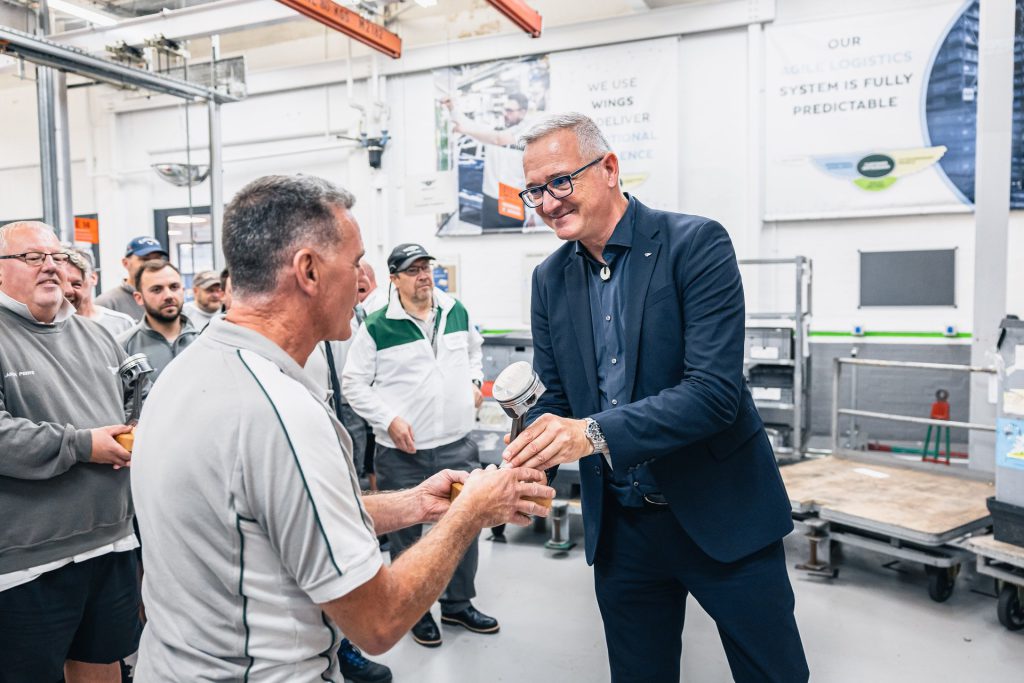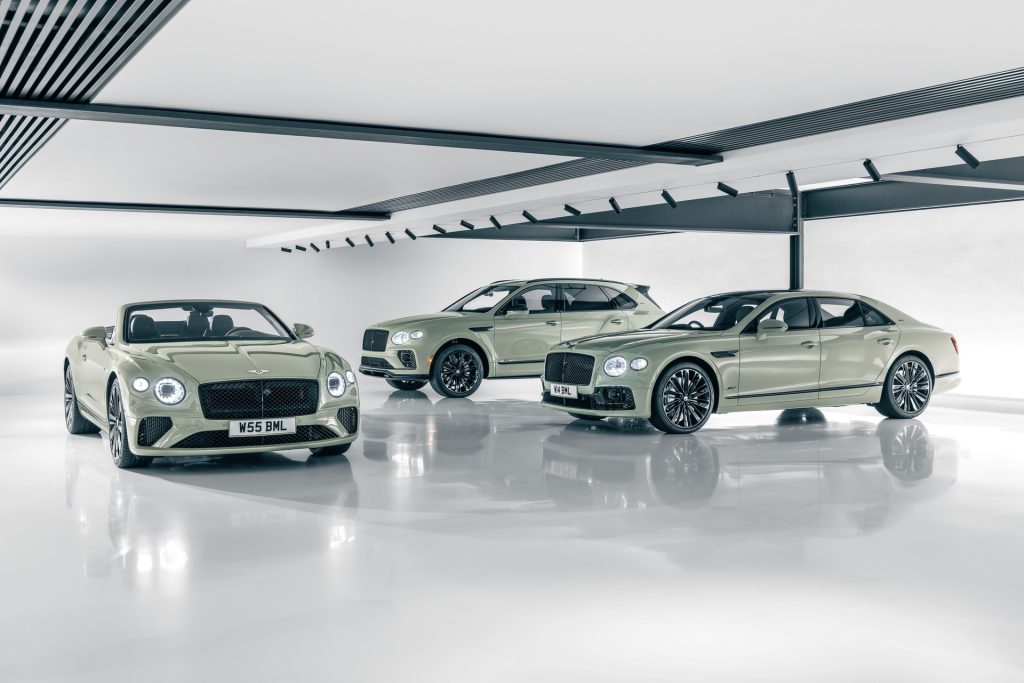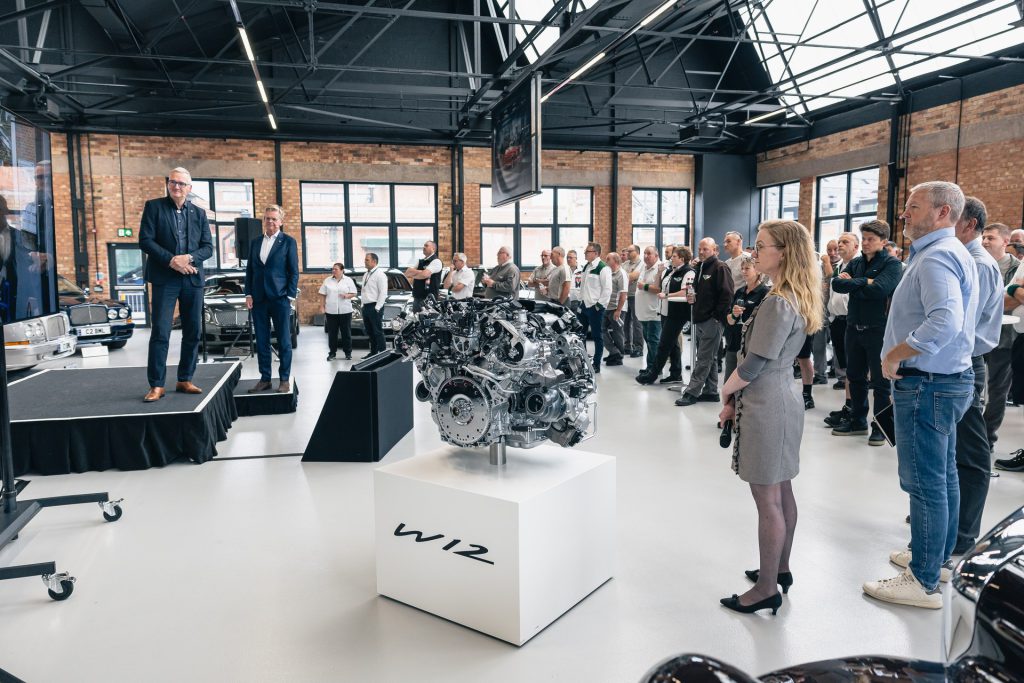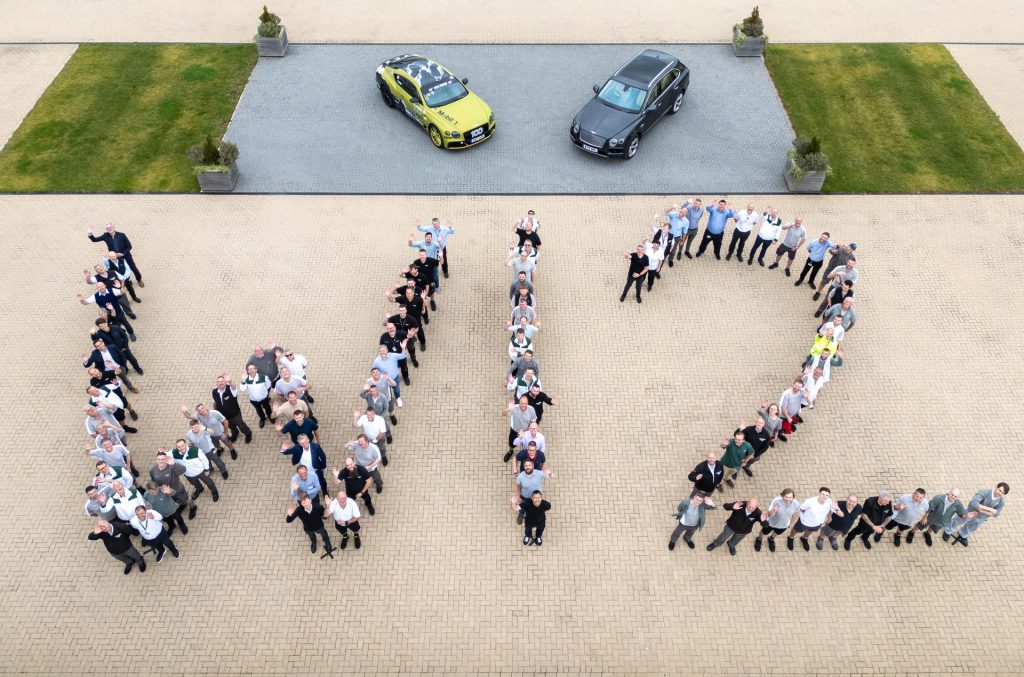In a significant milestone for the automotive world, Bentley announced today the assembly of its last 12-cylinder twin-turbo 6,000cc petrol engine at its historic Crewe factory in England.
This event signals the conclusion of a pivotal chapter in Bentley’s illustrious history, as the final Bentayga, Continental GT, and Flying Spur models featuring the renowned W12 engine have been completed.
The Legacy of Bentley’s W12 Engine
The W12 engine, introduced in 2003 with the launch of the first Continental GT, has been a hallmark of Bentley’s engineering prowess and luxury performance.
Over the past two decades, Bentley has hand-built more than 100,000 of these engines, each one a testament to the brand’s commitment to craftsmanship and innovation.

A Masterpiece of Engineering
Every W12 engine was meticulously assembled by a dedicated team of 30 craftsmen, each engine requiring approximately 6.5 hours to complete.
The W12 engine was a symbol of power and refinement, available in models such as the Continental GT Speed, Bentayga Speed, Flying Spur Speed, Continental GT Mulliner, and Flying Spur Mulliner.
Notably, in the Bentayga Speed, the W12 engine delivered an impressive 750 horsepower and 1,000 Nm of torque, underscoring its performance credentials.

The Decision to Cease Production
Bentley’s decision to cease production of the W12 engine aligns with its ambitious Beyond100 strategy. This forward-thinking plan aims to position Bentley as a leader in sustainable luxury mobility.
As a part of this strategy, Bentley is transitioning towards more environmentally friendly powertrains, including the introduction of a new plug-in hybrid V8 engine, which will replace the W12.
The Beyond100 Strategy: A Vision for Sustainable Luxury
Bentley’s Beyond100 strategy is a bold vision that aims to redefine the future of luxury mobility. Announced in 2020, this plan outlines Bentley’s commitment to becoming a fully electric brand by 2030.
Key elements of this strategy include the introduction of hybrid and electric vehicles across Bentley’s entire model range, significant investments in sustainable manufacturing processes, and a focus on reducing the environmental impact of its operations.

The Future of Bentley’s Powertrains
The transition from the W12 to the new plug-in hybrid V8 is a significant step in Bentley’s journey towards sustainability. This new engine combines the performance and luxury that Bentley is known for with the environmental benefits of hybrid technology.
The plug-in hybrid V8 offers a blend of electric and petrol power, providing improved fuel efficiency and reduced emissions without compromising on performance.
Crafting the Future: Bentley’s Commitment to Innovation
Bentley’s commitment to innovation extends beyond its powertrains. The company is investing heavily in research and development to create cutting-edge technologies that enhance the driving experience while reducing environmental impact.
From advanced aerodynamics and lightweight materials to state-of-the-art infotainment systems, Bentley is dedicated to pushing the boundaries of automotive engineering.

The Importance of Craftsmanship in the Modern Era
While technology and innovation are crucial to Bentley’s future, the company remains committed to its heritage of craftsmanship. The meticulous hand-assembly of the W12 engine exemplifies the attention to detail and dedication to quality that defines Bentley.
As the company moves forward, it will continue to uphold these values, ensuring that every Bentley vehicle is a masterpiece of luxury and performance.
The Impact on Bentley’s Model Range
The transition from the W12 to the plug-in hybrid V8 will bring changes to Bentley’s model range.
The new powertrain will be integrated into existing models such as the Continental GT, Bentayga, and Flying Spur, offering customers a seamless blend of traditional Bentley luxury and modern sustainability.
This transition also opens the door for the development of new models and technologies, further expanding Bentley’s portfolio of luxury vehicles.
Customer Response and Market Trends
The automotive market is undergoing a significant shift towards sustainability, driven by increasing consumer awareness and regulatory changes.
Bentley’s decision to embrace hybrid and electric technologies is in line with these trends, ensuring that the brand remains relevant and competitive in the evolving market.
Customer response to Bentley’s hybrid models has been positive, with many appreciating the combination of luxury, performance, and environmental responsibility.
Conclusion: A New Chapter for Bentley
As Bentley bids farewell to the W12 engine, it marks the end of an era characterized by unparalleled power and craftsmanship. However, this is also the beginning of a new chapter, defined by innovation and sustainability.
The transition to hybrid and electric powertrains represents Bentley’s commitment to leading the luxury automotive industry into a more sustainable future.
Bentley’s journey towards sustainability is a testament to the brand’s ability to adapt and innovate while staying true to its heritage.
The final W12 engine is a symbol of the past, but Bentley’s future is firmly rooted in the pursuit of excellence and sustainability.
As the automotive industry continues to evolve, Bentley is poised to lead the way, setting new standards for luxury and performance in the modern era.































